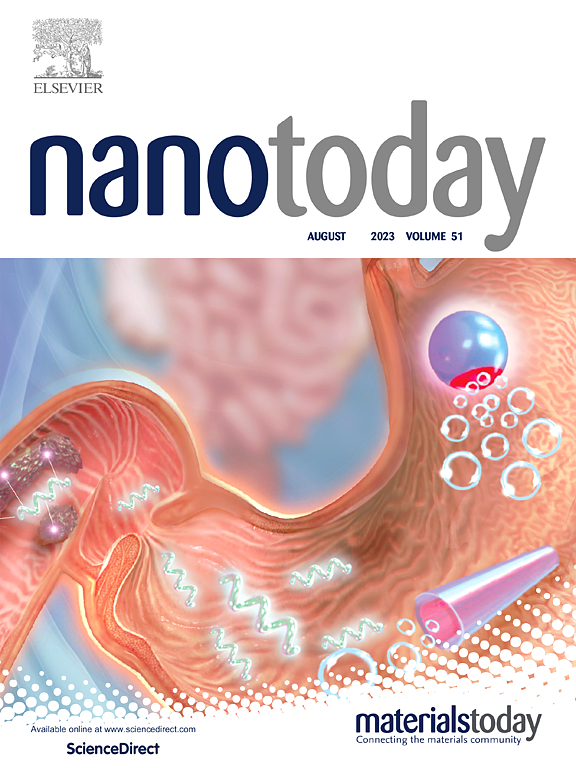BCG emulsified in lipiodol expands tumor epitope profile to boost cancer immunotherapy
IF 13.2
1区 材料科学
Q1 CHEMISTRY, MULTIDISCIPLINARY
引用次数: 0
Abstract
The limited shared antigens identified in cancers are insufficient as targets for universal immunotherapy, and the impaired major histocompatibility complex class I (MHC-I) expression, limited antigen exposure, and deficiency of immunogenicity lead to tumors evading immune surveillance. Here, we proposed a facile and effective BCG emulsion immunotherapy strategy that expands antigen exposure, increasing immune recognition, and boosting cancer immunotherapy. BCG emulsion, exhibiting efficient internalization in a non-fibronectin-dependent manner, reduced tumor growth, reprogrammed tumor microenvironment, and enhanced signaling pathways related to antigen processing and presentation. BCG emulsion can reverse the MHC-I downregulation, and peptide fragments from BCG-derived molecules are presented on the tumor cell surface by MHC-I. CD8+ T cells recognize and are activated against these presented BCG epitopes identified by immunopeptideome. The BCG dominant epitope emulsion induced significant infiltration of CD8+T cells and dendritic cells in tumors. Overall, this study demonstrated for the first time the potential of BCG and BCG epitope administration in anti-cancer applications and provided new technological methods and ideas for cancer immunotherapy.
脂醇乳化卡介苗扩大肿瘤表位谱,促进癌症免疫治疗
在癌症中发现的有限的共享抗原不足以作为通用免疫治疗的靶点,而受损的主要组织相容性复合体I类(MHC-I)表达,有限的抗原暴露和免疫原性缺乏导致肿瘤逃避免疫监视。在此,我们提出了一种简单有效的卡介苗乳剂免疫治疗策略,扩大抗原暴露,增加免疫识别,促进癌症免疫治疗。BCG乳剂以非纤维连接蛋白依赖的方式有效内化,降低肿瘤生长,重新编程肿瘤微环境,增强与抗原加工和呈递相关的信号通路。BCG乳剂可以逆转MHC-I的下调,BCG衍生分子的肽片段通过MHC-I呈现在肿瘤细胞表面。CD8+ T细胞识别并激活这些由免疫肽组鉴定的卡介苗表位。BCG显性表位乳剂诱导CD8+T细胞和树突状细胞在肿瘤中显著浸润。总之,本研究首次展示了卡介苗和卡介苗表位的抗癌应用潜力,为癌症免疫治疗提供了新的技术方法和思路。
本文章由计算机程序翻译,如有差异,请以英文原文为准。
求助全文
约1分钟内获得全文
求助全文
来源期刊

Nano Today
工程技术-材料科学:综合
CiteScore
21.50
自引率
3.40%
发文量
305
审稿时长
40 days
期刊介绍:
Nano Today is a journal dedicated to publishing influential and innovative work in the field of nanoscience and technology. It covers a wide range of subject areas including biomaterials, materials chemistry, materials science, chemistry, bioengineering, biochemistry, genetics and molecular biology, engineering, and nanotechnology. The journal considers articles that inform readers about the latest research, breakthroughs, and topical issues in these fields. It provides comprehensive coverage through a mixture of peer-reviewed articles, research news, and information on key developments. Nano Today is abstracted and indexed in Science Citation Index, Ei Compendex, Embase, Scopus, and INSPEC.
 求助内容:
求助内容: 应助结果提醒方式:
应助结果提醒方式:


